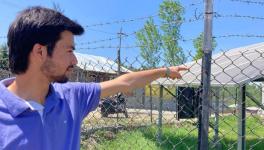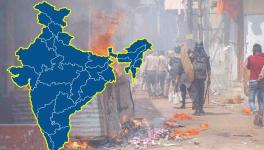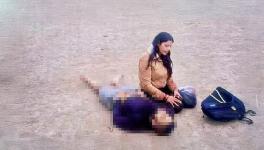Kashmir: How the Youth is Sensitising People to Counter COVID-19
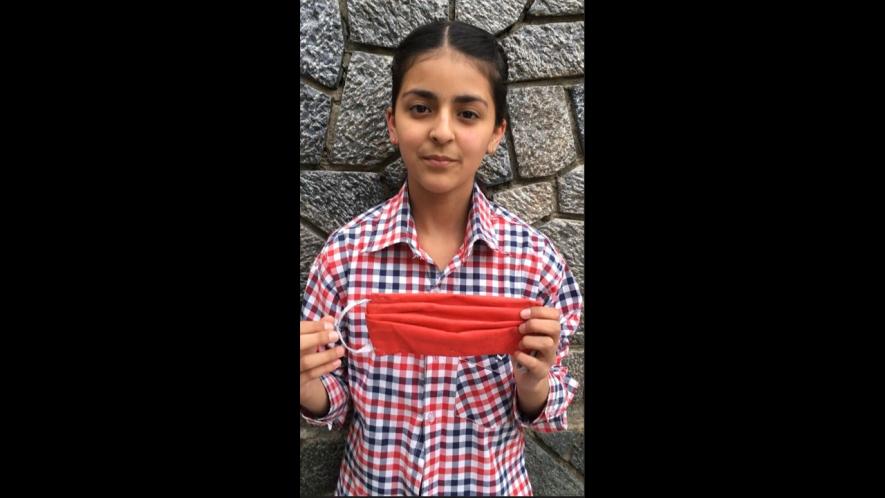
Aayat, a 10 year old, holding a mask she designed and made.
The youth of Jammu and Kashmir are well-read, levelheaded, and humorous, and those that recognise hazards and their ill-effects, given their experience.
The novel coronavirus has spread its grip over the entire world, and the WHO (World Health Organization) declared it a Pandemic.
Kashmiri youth were quickly attuned to the idea that if this pandemic does not stop, Kashmir will find itself in a giant snag with the decades-long conflict leaving it with poor health infrastructure. Kashmir has been under lockdown since August 5, 2019, and is ill-equipped to deal with the pandemic. So, initiatives needed to fight the coronavirus had to come from their own.
On the March 19, the Union Territory of Jammu and Kashmir recorded its first case of the coronavirus. A resident of Khanyar in Srinagar tested positive for COVID-19. According to authorities, the patient had a history of international travel and arrived in India on March 16 from Saudi Arabia.
Restrictions were put on public transport, assembly of people and schools, markets, gyms and the like, were shut.
Amid the chaos, Umar Nisar, a young Kashmiri broadcaster, knew of the precautions that needed to be taken at the moment. Umar came up with the idea of short podcasts (between 20 and 30 seconds long), where people from different backgrounds could converse. He requested people to stay indoors in order to be secure and shun any kind of gatherings. “I keep tracking the news and was reading what was coming from China and Italy and that just terrified me. I thought of doing something for my community rather than just being anxious. The Media is my only safe zone and I thought of podcasts,” he says. Umar’s podcast is titled ‘Mashq Talks’.
After the coronavirus threat became very real, started speaking to experts for advice and put up the recording online. They also roped in known faces not only at the local level but nationally as well.
“We are targeting doctors, paramedics, Bollywood filmmakers, Police personnel, producers, singers, authors and those with a fan base in order to amplify messages and make citizens aware about the significance of being home and taking necessary precaution,” said Umar.
As of now, there are only four positive COVID-19 cases in Kashmir but the administration has put strict restrictions in place. However, hospitals have an acute shortage of doctors and paramedics and healthcare facilities are insufficient to meet a crisis which has even unsettled countries with world-class medical infrastructure.
When the administration in Srinagar announced that Section 144 will be imposed with strict restrictions, Tanweer Ayub and his brother Ejaz decided to leave for the market in order to stock supplies. Tanweer’s daughter, Aayat, asked them: “Why are you going out without a mask?”
Her uncle Ejaz Ayub explained that there is a shortage of masks and if, by any possibility, they come across a store with masks, they would buy them. Aayat, realising their need, decided to design and create a mask.
“I checked a few videos on YouTube and started to experiment. I made two masks to begin with. When my father and uncle returned from grocery shopping I handed masks to them,” says the ten-year-old.
Her uncle and father were appreciative, and she started making homemade masks for all her family members and relatives as well. She uses tissue paper, glue, jute bags and threads to stitch. After sanitising all the material, she makes a three-layer mask that she claims reduces 50% of the chances of getting infections.
Aayat has set herself a target of 100 masks in a week. She donates them to the needy, and her friends and cousins, already inspired, have started making masks at home following her cue.
“Aayat has already crafted around 35 masks till today and her younger sister Duha is also helping. She is an assistant to Aayat now,” says Ejaz Ayub, their uncle.
Kashmir, already under lockdown before COVID-19, also faces a high-speed internet ban, which has held back awareness campaigns among people as well as doctors.
The ban on high-speed Internet has also made it impossible for many in Kashmir to work from home and people still try to go out and gather in parks, especially college-going students who are fond of cricket.
On Saturday, young photojournalist Zahid Dar (name changed) was travelling back from work when he crossed the Sri Pratap College Park and saw around 400 boys playing cricket in the vicinity. He thought of speaking to them but decided against going in and reasoning with that many people.
He quickly clicked some pictures and sent them to local authorities and within 10 to 15 minutes the ground was cleared and the gate was closed. Now, he keeps an eye out for unnecessary gatherings whenever he is out for work.
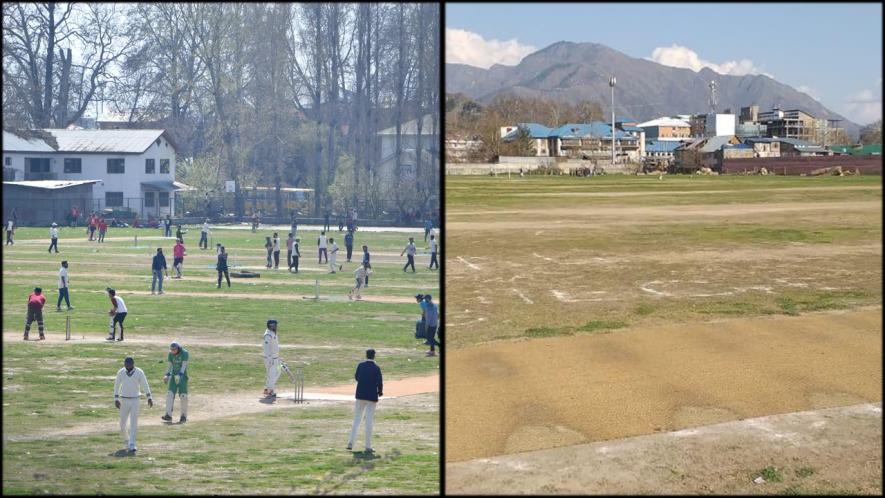
“As a Kashmiri, I completely understand that we will not be able to cope up with this virus given our health infrastructure. So, it’s better to prevent things from going out of hand. The only way out of this mess is positivity, helping each other, staying indoors and maintaining proper hygiene,” says Zahid Dar.
In two different hospitals in Srinagar, two doctors have been put in quarantine after they developed symptoms of COVID-19.
Kashmir Twitter is also advising people to stay home with hashtags like ‘TalsaGhareyBehew’ in Kashmiri, which roughly translates to ‘Please stay home’. It was done to keep the elderly aware and informed about the virus and to localise information by translating it into local languages.
Note: A correction has been made in the copy regarding the travel history of the first patient in Kashmir. Error is regretted.
Get the latest reports & analysis with people's perspective on Protests, movements & deep analytical videos, discussions of the current affairs in your Telegram app. Subscribe to NewsClick's Telegram channel & get Real-Time updates on stories, as they get published on our website.










